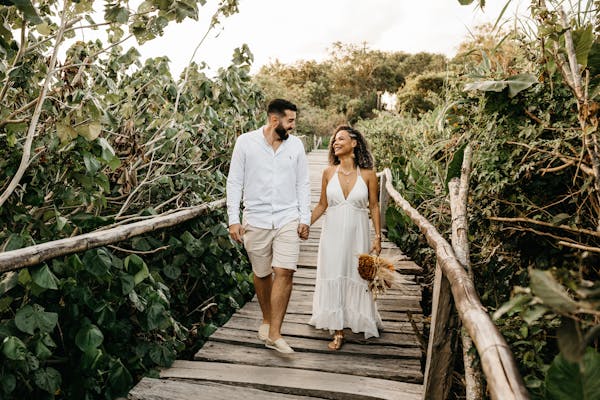A quality beach wedding photographer will create stunning images of you and your guests that will last a lifetime. You’ll want to keep these photos in both digital and print forms.
The best time for beach wedding photos is either just after sunrise or before sunset. This way, the light is soft and flattering. Check out hampshire wedding photographer for more info!
Location
A beach wedding photographer will know the best times to take photos at your destination. This will depend on the season and what kind of light is available. For example, the golden hour just after sunrise or before sunset can create softer, more flattering light than midday sunlight.
A beaches wedding photographer can capture stunning shots of the scenery and your guests. They will also know how to capture the special moments that make your day unique. A good beaches wedding photographer will work with you to craft a cohesive aesthetic that perfectly suits your style and vision.
When taking beach wedding photos, it is important to keep in mind that natural lighting can be challenging. The sun’s harsh rays can cast shadows on faces and cause squinting. To combat this, a photographers should use a lens hood and a reflector to reduce glare. They should also bring zip lock bags to store their camera, batteries, and lenses in when they are not using them. This will prevent sand from damaging their equipment.
Lighting
The beauty of a beach wedding can be enhanced by using the natural lighting to create stunning photos. This includes capturing dramatic shots of the crashing waves, rocky areas to bring out the rugged side of your wedding couples, and utilizing drones (if allowed) for spectacular aerial shots.

To overcome the challenges of shooting a beach wedding, your photographers should have the right equipment. This includes choosing weather-sealed cameras and lenses to protect against sand and water damage, as well as using a polarizing filter to reduce glare and enhance colors.
It is also important to consider the time of day when taking photos at a beach. Early morning or sunset shots will provide soft, flattering light. Also, it is essential to have a backup plan in case of bad weather. This should be communicated clearly to the bridal couple and other vendors.
Equipment
Choosing the right equipment is crucial to achieving high-quality, diverse photos. For example, a wide-angle lens is essential for capturing the grandeur of scenic backdrops and sweeping landscapes, while telephoto lenses allow you to zoom in on distant details, ideal for capturing intimate family shots. Additionally, consider packing accessories like remote triggers and intervalometers to capture creative time-lapse sequences and long-exposure shots.
A directional light can also make all the difference in beach wedding photos. When the sunlight is too harsh, using a fill light will balance out the couple’s exposure and create a more dynamic shot.
Drones are another great tool for capturing breathtaking aerial photos of the wedding location and ceremony site. They are especially useful in overcoming challenging shooting conditions, such as strong winds and low clouds. Other essential equipment for beach weddings includes waterproof camera housing, lens rain covers, and tripods that can withstand rugged terrain and unpredictable weather conditions. Having a backup storage device is also important to ensure that no data loss occurs during the shoot.
Style
Beach wedding photography captures the moments that make your day truly your own. Whether it’s laughter between friends or tender looks between the couple, these candid images add authenticity and emotion to your wedding album that posed photos simply can’t match.
When shooting beach wedding photos, be prepared for the unexpected. A sudden swell can flood the beach, leaving you with nowhere to stand! To avoid this, plan to shoot on a day with low tide or shoot from a rocky outcropping that can provide an escape route if needed.
To look your best, choose a simple beauty regimen that will work well in the sun and wind. For example, waterproof mascara and a touch of shimmer can highlight your natural glow. Also, opt for a loose, flowing hairstyle that will stand up to the breeze. And don’t forget to bring a waterproof camera bag to protect your equipment from sand and surf! It’s easy to get caught up in the excitement of your big day, so it’s important to stay calm and let the photographer direct you naturally.